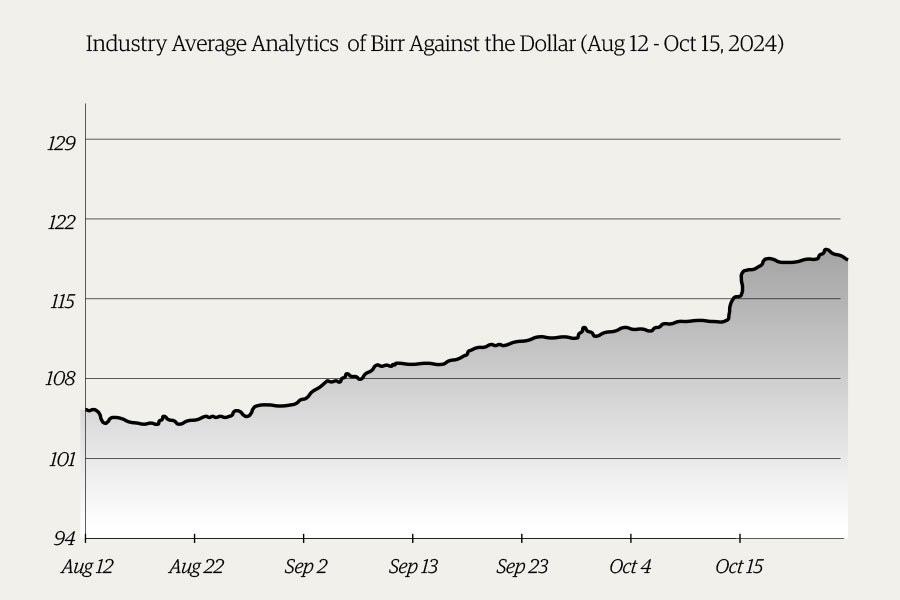
Jul 30 , 2022
By Christian Tesfaye
It seems that there is a new bank opening its doors every week. The latest was Tsehay Bank, which commenced its operations with a ceremony as its headquarters last week. A week before that was Ahadu Bank, and Amhara Bank about a month earlier. Over the past year, ZamZam and Hijira banks, full-fledged interest-free banks, have entered the financial sector.
The banks are similar. Most will primarily focus on retail banking, racing to mobilise deposits, lend to very few of their clients (especially in the export business) and conduct business through brick-and-mortar outlets. They do not bring much new to the table; if they will, it is yet to be seen.
But there is one element that is interesting about them: shareholder base. Ahadu, ZamZam and Hijira are somewhat similar. They all have about 10,000 shareholders raising subscribed capital in the low billions of Birr, except for Ahadu’s 702 million Br. Nothing much out of the ordinary. Tsehay and Amhara banks are another story.
Tsehay has only 373 shareholders, who have contributed 734 million Br in paid-up capital, and signed up for 2.9 billion Br in total. When all the subscribed capital has been fully paid up, around eight million Birr would have been raised on average from an individual shareholder, owning about 0.27pc of the shareholder equity. This makes Tsehay’s shareholders one of the least diluted in the banking industry.
On the other end of the spectrum is Amhara Bank. Its website puts the number of shareholders at 169,000, the highest among any bank in Ethiopia. Its subscribed capital is 6.5 billion Br, which puts the average individual contribution at a little over 38,000 Br when fully paid. The average ownership stake in the bank is highly diluted.
Is there a point to all of this, especially to the bank? Too many shareholders or too few, which is better?
There are both good and bad in either equity financing strategy. In the case of Amhara Bank, its large number of shareholders give it an edge in mobilising deposits. Say that each shareholder chooses to save at the Bank 1,000 Br on average; this is 169 million Br. If five more of their friends, family or relatives save just as much on average, this is 845 million Br in deposits mobilised using the shareholder network alone.
Being Tsehay Bank has its advantage as well. A low shareholder base means stakeholders whose interests can be reconciled and can easily agree on strategies and business models. It helps management be more flexible in manoeuvring within the market. Most shareholders are also likely high net worth (again, going by averages). Thus, dividend distribution would not be as salient as overall shareholder wealth maximisation. Profits can be reinvested without too much worry.
All of this will become more important as a stock exchange is introduced and banks are listed. Companies have specific shareholder management policies based on financing requirements, capital structure and current market price. Some want to have many and others less.
Take a recent example. Amazon, listed in the US, split its stocks 20-to-1, from about 2,000 dollars a pop to around 125 dollars (the discrepancy in the numbers is due to other facts that affect stock price). Why? Stock splits are carried out mainly to increase shareholder numbers, especially the share of retail investors. People who cannot afford 2,000 dollars have a chance to own an Amazon stock for a bit over 100 dollars. It is also to reflect the real price of a stock better. The more investors there are trading a share, the better the price discovery.
Others go in the opposite direction. Warren Buffett’s Berkshire Hathaway, a holding company, has an individual share trading at half a million dollars. It has much fewer shares outstanding for a publicly traded company its size. Only high-net-worth individuals (like Warren Buffet himself) and institutions (like the Bill & Melinda Gates Foundation) have the financial capacity to trade in Berkshire’s stock.
It is also not a surprise that the holding company does not pay dividends, despite sitting on a 144 billion dollar cash pile, according to its 2021 report. All dividends are reinvested. Berkshire Hathaway’s shareholder base is not retail investors, who need liquidity from investments for non-discretionary spending, but investors that seek long-term capital growth.
Neither Amhara nor Tsehay bank’s strategy is wrong. All that matters is that there is a well-developed game plan behind it.
PUBLISHED ON
Jul 30,2022 [ VOL
23 , NO
1161]


Radar | Jul 29,2023

Radar | Nov 13,2021

Addis Fortune | Feb 14,2022

Radar | Apr 12,2020

Radar | Aug 04,2024

Money Market Watch | Oct 27,2024

Radar | Mar 11,2023

Radar | Feb 19,2022

Fortune News | Dec 04,2021

Fortune News | Apr 20,2024

Photo Gallery | 178018 Views | May 06,2019

Photo Gallery | 168227 Views | Apr 26,2019

Photo Gallery | 158976 Views | Oct 06,2021

My Opinion | 137038 Views | Aug 14,2021
Commentaries | Oct 25,2025

Dec 22 , 2024 . By TIZITA SHEWAFERAW
Charged with transforming colossal state-owned enterprises into modern and competitiv...

Aug 18 , 2024 . By AKSAH ITALO
Although predictable Yonas Zerihun's job in the ride-hailing service is not immune to...

Jul 28 , 2024 . By TIZITA SHEWAFERAW
Unhabitual, perhaps too many, Samuel Gebreyohannes, 38, used to occasionally enjoy a couple of beers at breakfast. However, he recently swit...

Jul 13 , 2024 . By AKSAH ITALO
Investors who rely on tractors, trucks, and field vehicles for commuting, transporting commodities, and f...

Oct 25 , 2025
The regulatory machinery is on overdrive. In only two years, no fewer than 35 new pro...

Oct 18 , 2025
The political establishment, notably the ruling party and its top brass, has become p...

Oct 11 , 2025
Ladislas Farago, a roving Associated Press (AP) correspondent, arrived in Ethiopia in...

Oct 4 , 2025
Eyob Tekalegn (PhD) had been in the Governor's chair for only weeks when, on Septembe...

Oct 25 , 2025 . By YITBAREK GETACHEW
Officials of the Addis Abeba's Education Bureau have embarked on an ambitious experim...

Oct 26 , 2025 . By YITBAREK GETACHEW
The federal government is making a landmark shift in its investment incentive regime...

Oct 27 , 2025
The National Bank of Ethiopia (NBE) is preparing to issue a directive that will funda...

Oct 26 , 2025 . By SURAFEL MULUGETA
A community of booksellers shadowing the Ethiopian National Theatre has been jolted b...